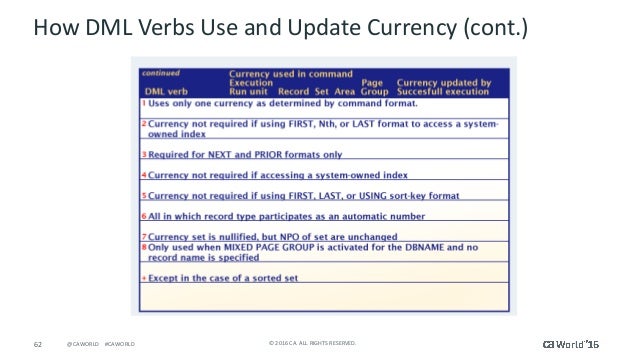Pl I To Cobol Converter Currency

CHARVAR(1:1) contains the most significant (higher-order) byte of BINVAR. However, on a little-endian machine, with the same code, CHARVAR(1:1) will contain the least significant (lower-order) byte of BINVAR; this is definitely a change of behavior and will probably lead to different observable results.
However, the Rehosting Workbench Cobol Converter is unable to detect and fix all occurrences of this situation (the example above is 'obvious', but there exists many much more complex cases); these must be handled manually. TRUNC(STD) option on the source platform – this option corresponds to the TRUNC option of Micro Focus Cobol.
Indeed, both on the source and on the target platforms, the portable binary types obey this option whereas the native type does not. In our opinion, the probability of observing a real difference of behavior is very low, because in general, binary-integer variables are used to hold 'control' values (loop counters, array indices, etc.) rather than applicative values. In any case, if differences of behavior are observed, it is up to the Rehosting Workbench user to deal with them, either by accepting them or by manually correcting them, for instance by returning a few selected variables to their original binary type. COMP-1 and COMP-2) types are 'translated' to the same types on the target platform.
Given this, the Micro Focus Cobol compiler and run-time system offer the possibility to use floating-point data ( COMP-1 and COMP-2 variables) in either the IBM hexadecimal format or the native (IEEE 754) format. If the NONATIVEFLOATINGPOINT option is set at compile time (which is true by default), then the floating-point format is selected at run-time, depending on the MAINFRAME_FLOATING_POINT environment variable and/or the mainframe_floating_point tunable. SEQUENTIAL on the source platform are translated into LINE SEQUENTIAL files on the target platform, to be more 'usable'. In general, this is a good choice and such files are well supported by the Micro Focus Cobol system. However, there is a catch: since such files are inherently of variable record size, a REWRITE operation may cause unpredictable results and differences of behavior (see the Micro Focus documentation). If you are not sure that REWRITE operations on a given SEQUENTIAL file would always succeed if that file is turned into a LINE SEQUENTIAL one, we advise to keep it purely SEQUENTIAL; this can be done by inserting its description in the configuration sub-file referenced by the pure-seq-map-file clause below.
JCL COBOL COBOL Most mainframe languages The most common approach to rewriting an existing application is to use application analysis tools to reverse. Pl I To Cobol Converter Mp3. Batch, C, C#, COBOL, JSP, SQL, PL/SQL, HTML, CSS, PHP, JavaScript. Converter de cobol para txt found at social.msdn.microsoft.com.
POINTER variable is part of a structure containing variants (redefinitions), and if the different variants (sub-structures) are designed so that one particular field of one variant must be aligned with (have the same location as) some other field in some other variant, then this property must be maintained after the POINTER variable changes size: compensation fillers must be inserted, etc. Profilo Storico Della Letteratura Italiana Pdf File. Again, this must be handled manually. Note that such intended alignments must be maintained across redefinitions, but also across MOVEs to other structures. NULL pointer value may vary from one platform to another, in particular between the source and target platforms – if only because they don't have the same size, like every other pointer value. In consequence, every program which assumes a specific representation for this value, for instance by 'casting' it to or from some binary integer value, may have a different behavior from one platform to another. The Cobol converter cannot handle this issue by itself, automatically, and it will have to be handled manually. Anyway, we strongly discourage such machine-dependent 'hacks'.